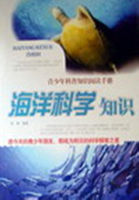It would be wrong to assume that Luther developed his theological system in its entirety before his separation from the Church. On the question of Justification and Free-will he had arrived at views distinctly opposed to Catholic doctrine, but his system as such took shape only gradually in response to the attacks of his opponents or the demands of his friends. On the one hand, imbued with the ideas of German Pantheistic mysticism, Luther started with the fixed principle that man's action is controlled by necessary laws, and that even after justification man is completely devoid of free will at least in religious matters. According to him, human nature became so essentially maimed and corrupted by the sin of Adam that every work which man can do is and must be sinful, because it proceeds in some way from concupiscence. Hence it is, he asserted, that good works are useless in acquiring justification, which can be obtained only by faith; and by faith he understood not the mere intellectual assent to revealed doctrines, but a practical confidence, resulting, no doubt, from this assent, that the merits of Christ will be applied to the soul. Through this faith the sinner seizes upon the righteousness of Christ, and by applying to himself the justice of his Saviour his sins are covered up. For this reason Luther explained that justification did not mean the actual forgiveness of sin by the infusion of some internal habit called sanctifying grace, but only the non-imputation of the guilt on account of the merits of Christ.
Since faith alone is necessary for justification it followed as a logical consequence that there was no place in Luther's system for the Sacraments, though in deference to old traditions he retained three Sacraments, Baptism, Penance, and the Eucharist. These, however, as he took care to explain, do not produce grace in the soul. They are mere outward pledges that the receiver has the faith without which he cannot be justified. Having in this way rejected the sacramental system and the sacrificial character of the Mass, it was only natural that he should disregard the priesthood, and proclaim that all believers were priests. In harmony with his theory on justification, and its dependence on faith, he denounced Purgatory, Prayers for the Dead, Indulgences, and Invocation of the Saints as being in themselves derogatory to the merits of Christ.
On the other hand, he laid it down as the leading principle that the Bible was the sole rule of faith, and that individual judgment was its only interpreter. Consequently he rejected the idea of a visible authority set up by Christ as an infallible guide in religious affairs. In this way he sought to undermine the authority of the Church, to depreciate the value of the decrees of the Popes and General Councils, and to re-assure his less daring followers by stripping ecclesiastical censures of more than half their terrors.[22]
The results of Luther's literary activity were soon apparent at Wittenberg and other centres in Germany. The Augustinians in Luther's own convent set aside their vows as worthless, and rejected the Mass.
Carlstadt made common cause with the most radical element in the city, celebrated Mass on Christmas morning in the German language (1521), and administered Holy Communion to every one who came forward to receive, without any inquiry about their spiritual condition. Putting himself at the head of a body of students and roughs he went round the churches destroying the pictures, statues, confessionals, and altars.
To increase the confusion a party of men at Zwickau led by a shoemaker, Nicholas Storch, and a preacher, Thomas Munzer, following the principle of private judgment advocated by Luther, insisted on faith as a condition for baptism and rejected infant baptism as worthless. They were called Anabaptists. They claimed to be special messengers from God, gifted with the power of working miracles, and favoured with visions from on high. In vain did Luther attack them as heretics, and exhort his lieutenants to suppress them as being more dangerous than the Papists. Carlstadt, unable to answer their arguments from Scripture, went over to their side, and even Melanchthon felt so shaken in his opposition that he appealed to Wartburg for guidance. The students at the university became so restless and turbulent that Duke George of Saxony began to take the prompt and decisive action necessary for dealing with such a dangerous situation. Luther, alarmed for the future of his work, abandoned his retreat at Wartburg (March 1522) and returned to Wittenberg, where he had recourse to stern measures to put an end to the confusion. He drove Carlstadt from the city, and even followed him to other places where he tried to find refuge, till at last, after a very disedifying scene between them in a public tavern, he forced him to flee from Saxony. Carlstadt's greatest offence in the eyes of his master was his preaching against the Real Presence of Christ in the Eucharist, though Luther himself admitted that he should have liked to deny the Real Presence if only to annoy the Pope, were it not that the words of Scripture proved too strong. Carlstadt adopted a different interpretation, but Luther was not the man to tolerate individual judgment in the case of one of his own lieutenants. Carlstadt was denounced as a heretic and a blasphemer, for whom no punishment could be sufficiently severe. Munzer, too, was banished, and with the assistance of the Elector, Luther was enabled to overcome all his opponents.














